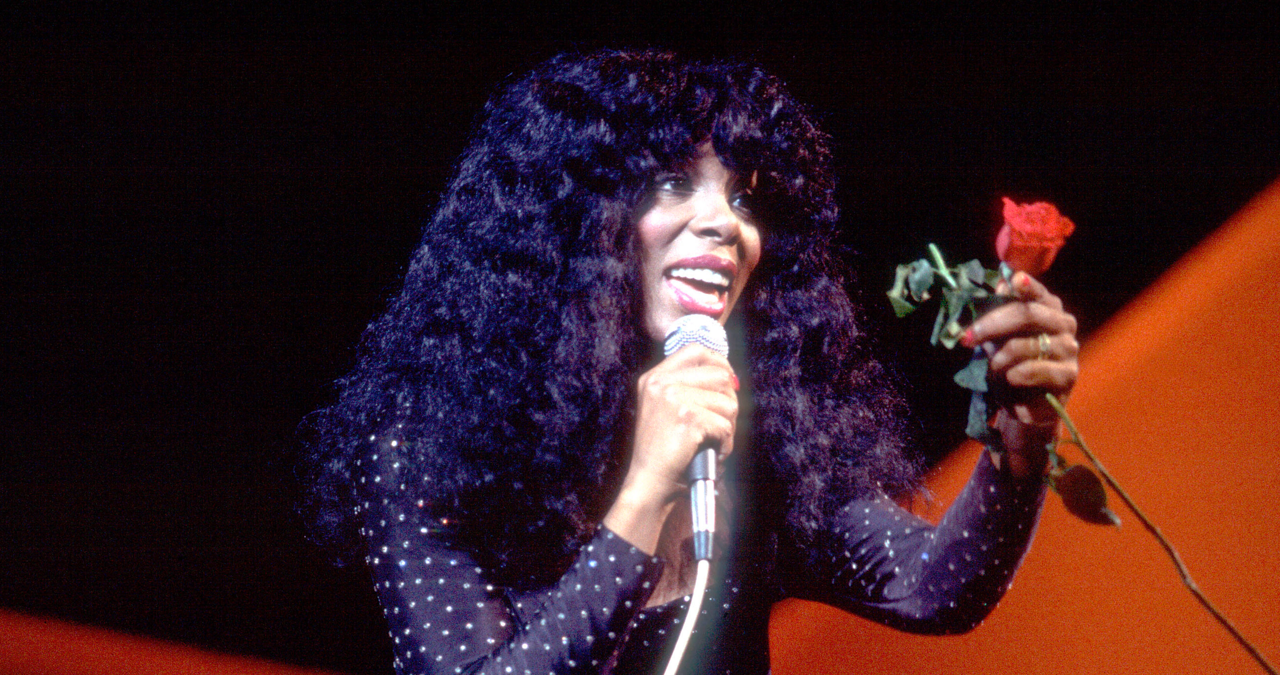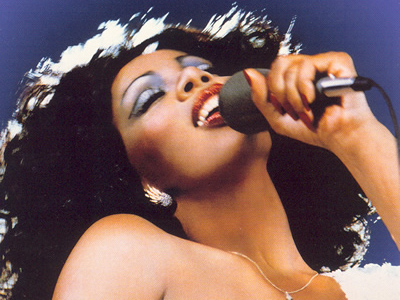
There’s few individual tracks that can be said to be singularly groundbreaking, most innovations happen hand-in-hand with larger trends or in tandem with bigger shifts in popular culture, however back in 1977, one song’s pulsing, synth-driven momentum would bridge the then-disparate worlds of electronic and chart music, and firmly lay the sonic foundations for practically everything that followed.
The song, ‘I Feel Love’ by Donna Summer, was produced and co-written by electronic music titan Giorgio Moroder and Pete Bellotte. Its kinetic arrangement bristling with Moog-constructed arpeggios, and a throbbing, motorik beat.
It's an arrangement that contains many hallmarks of techno and 21st century pop: interlocking synth-wrangled pulses, repetetive melodic runs, robotic snare sounds and - on top of it all - an immaculate ghostly vocal from Summer. At the time it was like nothing else, setting a template that would soon become the foundational electro-disco arrangement.
More importantly, it popularised a core electronic toolkit that underpinned no just disco, but the eventual shape of techno, house, EDM and not to mention a massive swathe of pop music.
As David Bowie recounted to David Buckley in his seminal Kraftwerk biography, Publikation, when he and Brian Eno first heard the track, the two musical pioneers realised that it signalled the shape of things to come.
As Buckley states in his book; "One of the songs which certainly impacted greatly in the summer of 1977 was a song which sounded as if Kraftwerk had gone potty and recruited a bona fide American soul singer. In fact, it wasn’t Kraftwerk, but Italian musician and producer Giorgio Moroder. ‘One day in Berlin,’ says Bowie, ‘Eno came running in and said, “I have heard the sound of the future.” He puts on “I Feel Love”, by Donna Summer, he said, ‘This is it, look no further. This single is going to change the sound of club music for the next 15 years.’ Which was more or less right.”
The song became a monster hit, reaching the top of many global charts and becoming a club staple. But interestingly, this future-prophesying piece of music was never written to be a single.
In fact, the track was intended to be an album track, the conclusion of Summer’s era-spanning fifth LP, I Remember Yesterday.
The record’s concept was that Summer performed in a variety of styles that evoked certain eras and genres, with I Feel Love culminating a style-spanning hop with a look ahead into the future, and a technology-based collision of then-new genres. “Donna finished in 10 minutes. Neither of us thought it would be as big as it’s been,” Moroder recounted to Record Mirror.

But I Feel Love’s perfect synergy of synth sounds, hypnotic beats and Summer's sublime harmony-building vocal struck more than one chord with the record-buying public - cutting through first when it appeared as the B-side to the more conventional Can’t We Just Sit Down (And Talk It Over) single.
Its word-of-mouth and club appeal would lead to it being flipped to be the the A-side of the single on July 2, 1977.
Back at the time, synthesiser music was a relatively new field of experimentation and seen as something of a novelty by the American and British mainstream, with most of the sonically pioneering work coming from Germany.

Kraftwerk, Can, Tangerine Dream and Neu! were certainly ahead of the curve, but their releases had niche appeal compared to the still-dominant conventional instrument set-up of most western pop.
At the time Brian Eno made the assertion that I Feel Love would change club music, he himself was deeply involved in a project that would similarly bring the notion of sonic experimentation to more ears, busying himself with David Bowie in the building of Bowie’s synth-dominated ‘Berlin’ trilogy.
But while those albums were gateways into this new frontier for Bowie fans and the more attentive-end of the record-buying public, for the general, and more passive listener, I Feel Love’s vibrant synth palette, locked in tandem with a danceable beat and divine vocal would be far more engaging. It was a portal that led to a whole new world of sound.
I Feel Love would be an omnipresent, inescapable single in the summer of 1977. Though, many listeners were quite unaware of just how important it would prove to be. It’s been described by some as ‘proto-house’, and by others as the ‘first EDM track ever made’.
An apt comparison was made by producer Ewan Pearson, speaking to The Guardian in 2012, Pearson said; “It's easy to underestimate it now; it's like Blade Runner - whenever you show that to someone younger, they're not impressed because it looks so familiar. Well, yes - that's because Blade Runner invented our idea of the future. It's the same with I Feel Love.”







